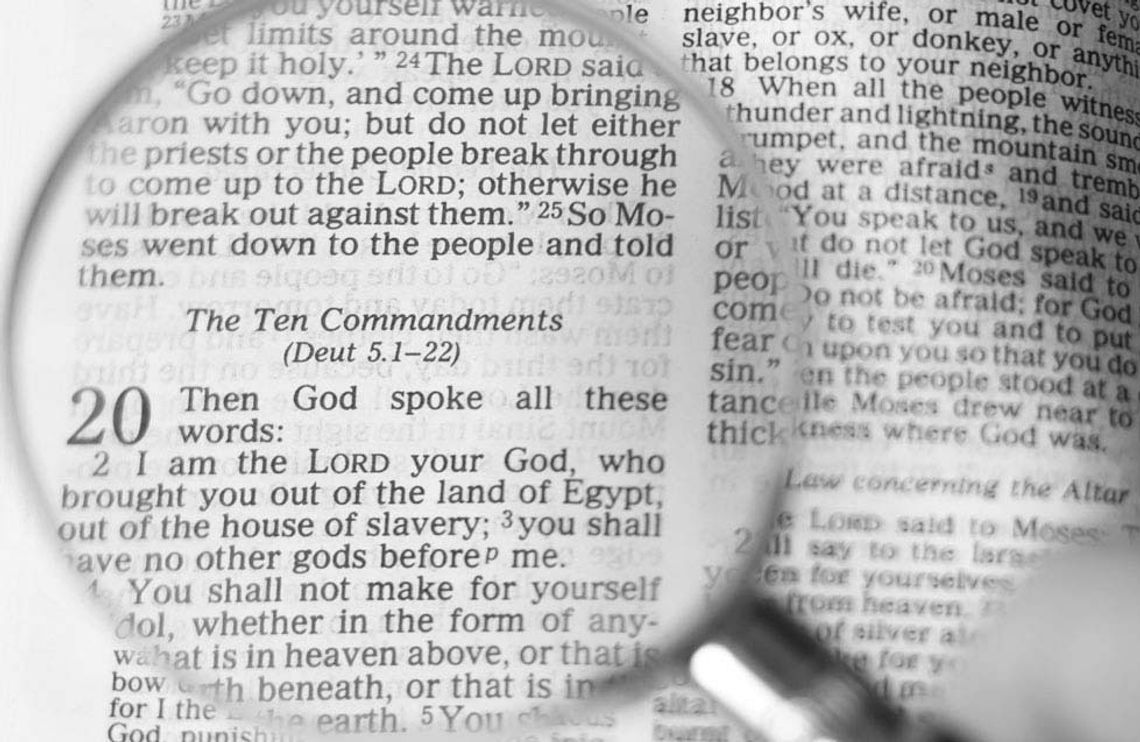DELIBERATELY DIVERSE | The Rev. Terry Pierce
Deliberately Diverse represents the opinions of a group of Taylor friends who almost never completely agree about anything but enjoy diverse discussions in our beloved community.
This column is the first in a multi-part series about the Ten Commandments.
Texas Senate Bill 10, effective Sept. 1, requires a specific form of the Ten Commandments to be displayed in public school classrooms.
Here are the first lines of the required poster:
The Ten Commandments
I am the Lord thy God. Thou shalt have no other gods before me.
Thou shalt not make to thyself any graven images.
The text of what Christians call the Ten Commandments comes from two places in the Hebrew Bible (or Old Testament as some Christians name it): Exodus 20:1–17 and Deuteronomy 5:6–21.
Exodus recounts the story of Moses who led the Hebrew people out of Egypt where they were oppressed. Moses received the Ten Commandments from God and brought them down to the people. Exodus 20 reflects the words of Moses as he came down from the mountain. Forty years later, when they were finally able to enter the Promised Land or the Land of Canaan, Moses recounted the words to the generation that was about to enter Canaan, which are recorded in Deuteronomy.
In Jewish tradition, these are called the 10 words, the divine utterances of God. When the Hebrew Bible was translated into Greek before Jesus was born, the Greek word used meant “10 words” and that is what became Decalogue in English.
The first question I encountered: Is “I am the Lord your God” one of the commandments or is it something else?
The Hebrew Bible holds the first statement to be “I am the Lord your God who brought you out of the land of Egypt, out of the house of slavery.”
In Jewish tradition, God’s self-identification and reminder of the Exodus establishes God’s authority and the covenant relationship with the Hebrew people based on God’s saving acts.
This statement emphasizes that the entire set of commandments flows from this relationship of redemption and liberation, making it the essential foundation for all that follows.
The second commandment includes both the second and third statements above, because the prohibition against other gods and the prohibition against idolatry are two aspects of the same essential commandment about exclusive monotheistic worship.
The Catholic catechism combines the first three statements into one commandment: “I am the Lord thy God. Thou shall not have strange gods before me.”
In reformed theology, the phrase “I am the Lord your God” is considered the preface to the Ten Commandments. It states a truth which establishes God’s authority and because of this truth, there follow expectations, or commandments.
The first commandment is, “Thou shalt have no other gods before me” and the second commandment prohibits misusing the name of God, which incorporates the third statements above.
Perhaps we can agree these three statements are foundational for human morality. More to come.
Pierce is the vicar of St. James’ Episcopal Church in Taylor.









